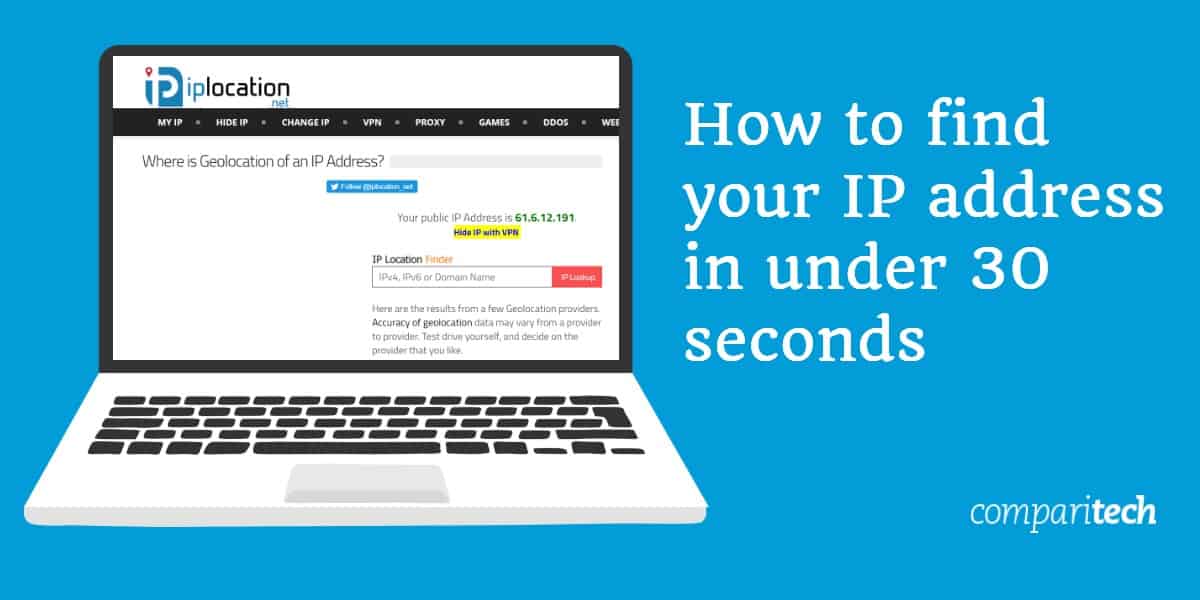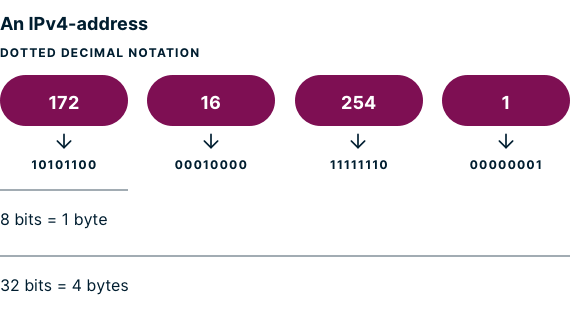Welcome to the world of online privacy and security! You might be wondering, “What is my IP address VPN?” Well, I’ve got you covered.
Are you curious about how to protect your personal information while browsing the internet? Look no further! In this article, we’re going to explore the concept of VPNs and what they do to safeguard your data.
So, buckle up and get ready to explore the exciting world of VPNs and discover how they can make your online experience safer and more private. Let’s dive in!
A VPN (Virtual Private Network) masks your IP address, providing online anonymity. To find your IP address while connected to a VPN, follow these steps:
1. Open a web browser and visit a reliable IP checking website.
2. The website will display your IP address along with other details like location.
3. Compare this IP address with the one you had before connecting to the VPN.
4. If the IP address has changed, your VPN is working as intended, ensuring your privacy online.

What Is My IP Address VPN: A Comprehensive Guide
Welcome to our comprehensive guide on “What Is My IP Address VPN”. In this article, we will delve into the world of VPNs and explore everything you need to know about your IP address in relation to VPN services. Whether you are a beginner looking to understand the basics or a tech-savvy individual seeking advanced information, this guide has got you covered. So, let’s dive in and discover the fascinating world of IP addresses and VPNs.
Understanding IP Addresses
Before we delve into the world of VPNs, it’s important to understand what an IP address is and how it works. An IP address, short for Internet Protocol address, is a unique numerical label assigned to each device connected to a computer network. It serves two primary functions: network interface identification and location addressing. In simple terms, it is like a digital address that allows devices on the same network to communicate with each other.
There are two types of IP addresses: IPv4 (Internet Protocol version 4) and IPv6 (Internet Protocol version 6). IPv4 addresses are composed of four sections separated by periods, while IPv6 addresses consist of eight sections separated by colons. IPv4 addresses are more commonly used today, but the transition to IPv6 is ongoing due to the limited number of IPv4 addresses available.
When you connect to the internet, your Internet Service Provider (ISP) assigns you an IP address. This IP address can reveal information about your location, internet service provider, and other details. This is where VPNs come into play, offering privacy and security benefits by masking your true IP address and providing you with a new one.
The Role of VPN in Privacy and Security
A Virtual Private Network, or VPN, is a technology that allows you to create a secure connection to another network over the internet. It provides privacy and security by encrypting your internet traffic and routing it through a server operated by the VPN provider. When you connect to a VPN server, your IP address is masked and replaced with the IP address of the server, making it appear as though you are browsing from a different location.
One of the key benefits of using a VPN is enhanced privacy. By masking your IP address, a VPN prevents websites, advertisers, and other entities from tracking your online activities and collecting your personal information. It also protects your data from potential hackers or eavesdroppers, as the encrypted connection ensures that your sensitive information remains secure.
Moreover, VPNs allow you to bypass geo-restrictions and access content that may be blocked or unavailable in your region. By connecting to a server in a different country, you can appear as though you are browsing from that location, enabling you to stream movies, access restricted websites, and enjoy a more open internet experience. However, it’s important to note that the legality of using VPNs and accessing geo-restricted content may vary depending on your jurisdiction.
Choosing the Right VPN for Your Needs
With a multitude of VPN providers available in the market, choosing the right one can be a daunting task. To make an informed decision, consider the following factors:
- Security: Look for a VPN that uses strong encryption protocols and offers additional security features like a kill switch to protect your data.
- Server Locations: Check the provider’s server locations to ensure they have servers in the countries you want to access content from.
- Simplicity: A user-friendly interface and easy setup process are essential for a hassle-free experience.
- Connection Speed: Some VPNs may slow down your internet connection. Look for reviews or trial options to test the speed before committing.
- Device Compatibility: Ensure that the VPN provider supports the devices you intend to use it on, such as smartphones, tablets, or routers.
- Price: Compare the pricing and subscription plans to find the one that aligns with your budget.
- Customer Support: Check if the VPN provider offers reliable customer support in case you encounter any issues.
By considering these factors and reading reviews from reputable sources, you can find a VPN that meets your specific needs and provides a secure and reliable connection.
Protect Your Online Privacy with a VPN
Now that you have a better understanding of IP addresses and VPNs, take control of your online privacy and security by considering a reliable VPN service. By masking your IP address, encrypting your traffic, and ensuring your anonymity online, a VPN can provide you with peace of mind while browsing the internet. So, whether you’re working remotely, traveling, or simply want to enjoy a safe online experience, investing in a VPN is an essential step in protecting your digital presence.
To uncover your VPN IP address, follow these precise steps:
- Access VPN Settings: Begin by accessing the settings or preferences menu of your VPN software. This can often be found in the taskbar or system tray on your computer.
- Connect to VPN: Ensure that you are currently connected to your VPN service. If not, connect to it by selecting your desired server location.
- Check Internal IP: While connected to the VPN, your device will have an internal IP address assigned by the VPN server. To find this on a Windows computer, open the Command Prompt and type ‘ipconfig’ and look for the IPv4 address associated with your VPN connection. On a Mac, you can use the ‘ifconfig’ command in Terminal.
- Online Tools: Alternatively, you can visit websites that display your public IP address, such as “whatismyip.com” or simply searching “What is my IP” in a search engine while connected to your VPN.
- VPN Provider’s Interface: Some VPN providers also have their own user interfaces or websites where you can check your current VPN IP address. Refer to your provider’s documentation for details.
- Mobile Devices: If you’re using a VPN on a mobile device, you can typically find your VPN IP address in the VPN app’s settings or by searching for “What is my IP” on your mobile browser while connected.
Always remember that your VPN IP address is not your actual public IP address, as it is masked by the VPN server you are connected to. This anonymity is a fundamental aspect of VPN technology, ensuring your online privacy and security.
Key Takeaways: What is My IP Address VPN?
- Your IP address is a unique identifier assigned to your device when connected to the internet.
- A VPN (Virtual Private Network) is a tool that helps protect your online privacy by masking your IP address.
- Using a VPN can help you bypass restrictions and access geo-blocked content.
- VPNs encrypt your internet traffic, making it more secure and private.
- It’s important to choose a reliable VPN service provider to ensure your data is protected.
Remember, always prioritize the privacy and security of your online activities by using a trustworthy VPN service.
Frequently Asked Questions
Below are some commonly asked questions about VPNs and how they affect your IP address. Take a look!
1. Can a VPN hide my IP address?
Yes, a VPN can effectively hide your IP address. When you connect to a VPN server, it acts as an intermediary between your device and the internet. The VPN server assigns you a new IP address, replacing your original one. This way, your online activities are masked, and your true IP address remains hidden.
By encrypting your internet traffic and routing it through different servers, a VPN ensures that your IP address is not easily traceable by websites or third parties. It adds a layer of privacy and security to your online browsing experience.
2. How does a VPN protect my IP address?
A VPN protects your IP address by creating a secure and encrypted connection between your device and the internet. When you use a VPN, all your internet traffic is routed through the VPN server, which acts as a middleman.
This process hides your true IP address because the websites and online services you visit only see the IP address of the VPN server. It adds an extra layer of anonymity and protects your identity and location from being exposed to potential eavesdroppers or malicious actors.
3. Can I change my IP address with a VPN?
Yes, you can change your IP address with a VPN. When you connect to a VPN server, you are assigned a new IP address from the server’s pool of available addresses. This new IP address is different from your original one and can help you bypass geo-restrictions, access blocked content, and enhance your online privacy.
It’s important to note that changing your IP address with a VPN won’t permanently alter your original IP address. Once you disconnect from the VPN, your IP address will revert to its original state.
4. Will a VPN affect my internet speed?
While a VPN can slightly affect your internet speed, the impact is usually minimal. When you connect to a VPN server, your internet traffic goes through an extra step of encryption and routing, which can introduce some latency. However, with modern VPN technologies and high-speed servers, the difference in speed is often negligible for regular browsing and streaming activities.
It’s worth mentioning that factors such as the distance between you and the VPN server, as well as the quality of your internet connection, can also influence the speed you experience while using a VPN. Choosing a reliable VPN provider with fast servers can help minimize any potential slowdowns.
5. Is using a VPN legal?
Using a VPN is generally legal in most countries, including the United States and many European nations. However, it’s important to note that while VPN usage is legal, the activities conducted through a VPN might be subject to different laws and regulations. For example, using a VPN to engage in illegal or malicious activities is still prohibited and can have legal consequences.
It’s advisable to review the laws and regulations related to VPN usage in your specific country or region to ensure compliance. In some countries, there may be restrictions or limitations on VPN usage, particularly in heavily censored or authoritarian environments.

Summary
Your IP address is a unique identifier for your device on the internet. It helps websites and services know where to send information. However, using a VPN can help protect your privacy and change your IP address. A VPN creates a secure connection that hides your real IP address and makes it appear as if you’re browsing from a different location.
When you use a VPN, your internet traffic is encrypted, making it harder for others to see what you’re doing online. It also allows you to access geo-restricted content and browse anonymously. Remember, always use a reputable VPN service to ensure your online privacy and security.
